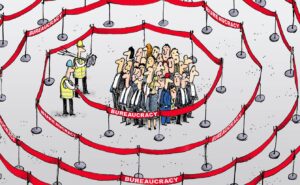This government seems committed to remove the “local” from government. In an article in Newsroom it was reported this week that yet another minister announced that:
It (the government) has two parallel work streams to seize control of housing regulation from local authorities.
This has been largely missed by most of the media.
Right now, local government is facing the following reviews by central government:
- A panel reviewing the future of local government.
- The 3 Waters water reforms which remove them from local government.
- The proposed reform of the Resource Management Act which will centralize decision making.
- A Bill allowing the construction of 3 Storey homes on a property as of right with no input from local government and now,
- A review of housing regulations.
I would be the first person to admit that local government needs to clean its act up. However, garrotting it because you have the power to do this is not the way to achieve change. This government has the greatest centralising inclinations we have had, possibly forever.
What needs to happen is a careful analysis of local government. This should take several years. We should all have a chance to participate in this. Locally. These local dialogues could then be summarised and something sensible would emerge from it. Now it seems that policies are written to appease Auckland voters. We need a collaborative approach between the ratepayers and the taxpayer, who, somebody should point out, are the same people. None of us want to see inefficiencies in either local or central government. However, centralisation is not the only solution.
Public policy is about rationing. There is no way either central or local government could meet all the demands from the public. That’s why public debate is so important. People get agitated when the debates become heated. I have always felt that when people are passionately engaged in a debate that is a good thing. In no-mans land between the debaters generally lies the solution both parties could live with.
Henry Kissinger is quoted as saying:
Democracies evolve in a conflict of factions. They achieve greatness by their reconciliations.
Where the no-mans-land exists between central and local government is difficult to locate right now. This isn’t an equal debate. Local government is a creature established through rules set by central government. Central government is driving the debates wearing jack boots. This is not a discourse between equals. The minister of local government regularly demonstrates that right now.
It really is time for central government to back off and have a cup of tea. Its peace-pipe smoking time again. Neither the public nor local government trusts all the reforms which are being pushed right now. Just look at the reaction to the 3-Storey as of right housing solution; or the 47.7% of the public being against the proposed 3 Waters reforms to tell that the public is being left behind and will eventually add all this up and manifest their resentment through the ballot box.
Bomber Bradley recently wrote:
If Government wants to make NZ more ‘socially cohesive’ they should build more houses, use a wider range of taxes against corporations and fully fund mental health, education and public health – they shouldn’t strangle off free speech with poorly thought-out knee-jerk legislation”
This quote could be easily applied to a review of local government’s role in society.
New Zealand needs a sensible debate about a well structured and properly financed local government. This takes time. This will require movement by both sides. One way central government could assist would be by releasing some financial assistance to local government by ceasing to charge a tax on a tax, i.e. charging GST on rates. Or, paying rates on its properties around the country because that doesn’t happen right now.

In the recently released Yanis Varoufakis book ‘Another Now’ he promotes an alternative new acronym which is TATIANA’.
TATIANA ‘That Astonishingly There Is AN Alternative’. That’s something else for central and local government politicians to contemplate.
Rosemary adds – if more centralisation is the answer – what is the question?
Leave a Reply